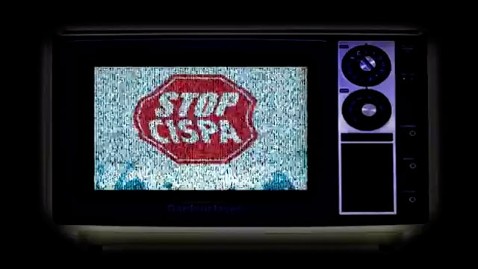
No sooner had the House of Representatives passed the Cyber Intelligence Sharing and Protection Act (CISPA), on Thursday, than word began spreading of an online protest. Some are suggesting the protest take the form of a “blackout” – going offline for 24 hours, displaying censorship bars over content or posting statements of opposition to Internet censorship — similar to last year’s opposition to the Stop Online Piracy Act (SOPA) and the Protect IP Act (PIPA).
Supporters on Twitter have begun tweeting the hashtag #CISPABlackout to promote the proposed April 22 “blackout.”
Though proponents see the bill as a strong measure to fight cyber threats and better protect citizens, organizations like the American Civil Liberties Union, The Internet Defense League and the Electronic Frontier Foundation oppose CISPA because of the jurisdiction it would provide for the federal government to procure personal information shared with private-sector entities such as Google or Facebook.
The original draft of CISPA first passed the House in 2012, but died in the Senate and was publicly opposed by the White House. “The administration strongly opposes [CISPA], in its current form,” Obama’s Office of Management and Budget said in a statement last year.
The office of the president hasn’t changed its tune for CISPA 2013 either, recently issuing a statement: “The administration still seeks additional improvements, and if the bill, as currently crafted, were presented to the president, his senior advisers would recommend that he veto the bill.”
—
Click below for the full article.